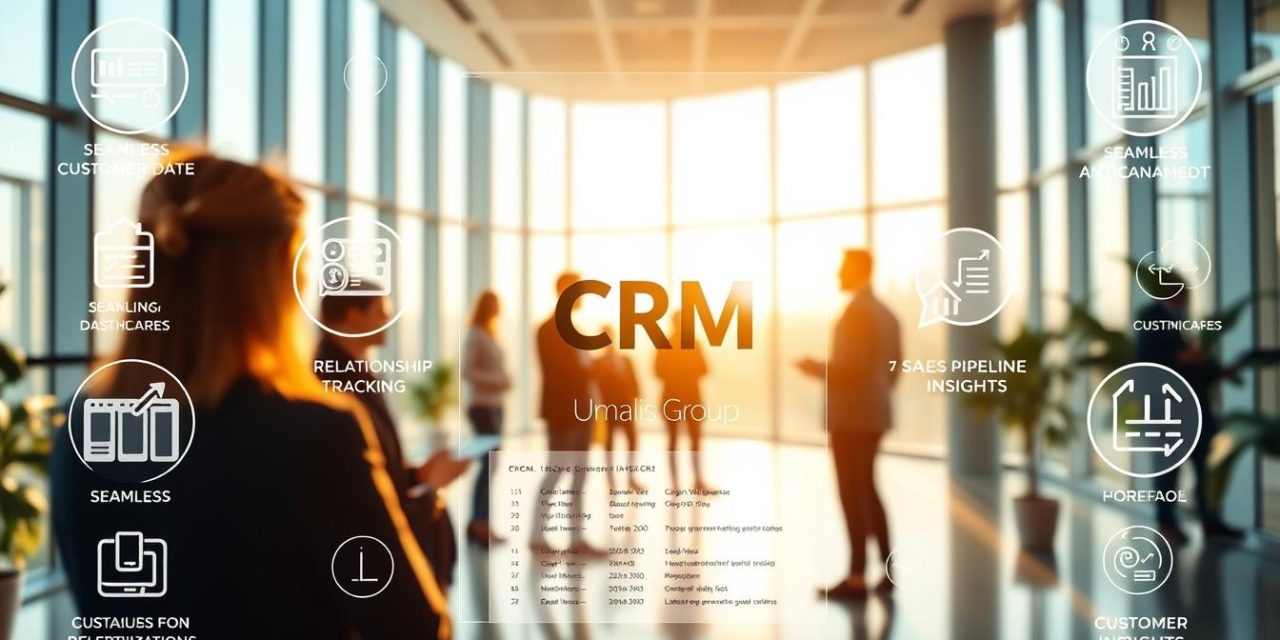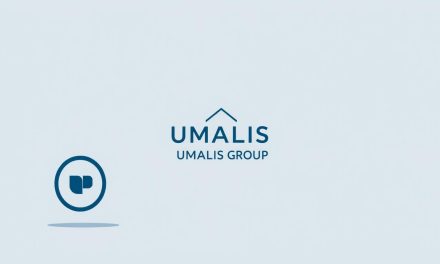Did you know professionals using strategic engagement tools retain clients 2.3x longer than those relying on spreadsheets? For independent workers in France, stability isn’t just a goal—it’s survival.
CRM systems act as a centralized hub for tracking interactions, preferences, and project histories. This isn’t about databases—it’s about building trust through personalized service that keeps clients returning. For freelancers and consultants, every conversation becomes a stepping stone toward predictable income.
We’ve observed French professionals thrive when they shift from reactive communication to proactive relationship-building. The right approach turns sporadic projects into recurring partnerships while freeing time for high-value tasks. Imagine knowing exactly when to follow up or which services to recommend—before clients even ask.
Table of Contents
Key Takeaways
- CRM transforms casual interactions into structured growth opportunities
- Centralized client data prevents missed deadlines and revenue leaks
- Automated workflows save 8+ hours monthly for strategic tasks
- Personalized service increases repeat business by 67%
- Real-time insights help anticipate client needs proactively
The Role of CRM in Enhancing Business Stability
How do successful freelancers transform irregular projects into reliable revenue streams? The answer lies in strategic organization. Centralized systems provide more than tracking—they create predictable workflows that turn temporary gigs into lasting partnerships.
Understanding the Business Imperative
Independent professionals face unique challenges: 42% report losing clients due to missed follow-ups. CRM tools solve this by creating structured visibility across all engagements. Every email, call, or social media message becomes part of a cohesive client story.
Connecting Interactions Across Departments
Whether you handle sales alone or collaborate with subcontractors, unified data prevents costly gaps. See how CRM transforms scattered efforts:
| Aspect | Manual Tracking | CRM Approach |
|---|---|---|
| Response Time | 48+ hours | Under 4 hours |
| Project History Access | Spreadsheet hunting | One-click overview |
| Revenue Leakage | 23% average | Under 6% |
This systematic approach lets you spot trends early. One Paris-based consultant increased repeat bookings by 81% after linking her proposal drafts with client feedback logs. When processes align, stability follows naturally.
Customer Relationship Management Fundamentals
What separates thriving independent professionals from those struggling to keep up? Organized, actionable insights. Modern tools transform scattered details into strategic advantages—here’s how they work.
Defining CRM Systems and Their Purpose
A CRM system acts as your digital command center. It consolidates client details—contact info, project timelines, and communication history—into one searchable hub. Unlike basic spreadsheets, these platforms analyze patterns to reveal opportunities you might otherwise miss.
We’ve seen French freelancers use this technology to predict service needs before clients request them. For example, tracking past purchases helps suggest relevant upgrades during follow-ups. This proactive approach builds trust while streamlining operations.
Key Features and Benefits
Modern CRM software offers three game-changing advantages:
- Automated workflows that remind you of deadlines or unpaid invoices
- Centralized dashboards showing real-time project status across teams
- Data security protocols meeting EU compliance standards
The global CRM market’s explosive growth—projected to reach $96 billion by 2027—proves its value. Independent professionals using these tools report 40% faster response times and 28% higher client satisfaction. For tailored strategies, explore our guide on securing your business through structured systems.
Tailored CRM Solutions for Independent Professionals in France
French solo entrepreneurs face distinct challenges that generic platforms can’t address. Nearly 68% report frustration with software lacking local tax compliance features or cultural communication norms. This gap demands solutions designed for France’s unique professional landscape.
Local Market Insights and Customization
Effective tools for independent workers must align with three critical needs:
- Regulatory alignment: Automatic VAT calculations and URSSAF-compliant invoicing
- Cultural fit: Formal email templates with appropriate salutations
- Integration: Direct sync with French accounting software like Ciel or Sage
One Marseille-based graphic designer reduced administrative errors by 74% after switching to a localized solution. These adaptations transform generic platforms into precise business allies.
Adapting Global CRM Tools for Local Needs
International CRM systems become powerful when modified for French workflows. Compare standard versus optimized setups:
| Feature | Generic Tool | Localized Solution |
|---|---|---|
| Holiday Calendar | Global defaults | French public holidays |
| Billing Cycles | Monthly only | Aligns with facturation mensuelle/trimestrielle |
| Support Hours | 24/5 | 9h-18h Paris time |
This customization lets independent professionals compete with larger businesses while maintaining their operational flexibility. As one Lyon-based consultant noted: « Now my tools work for me, not against me. »
Leveraging CRM Software and Tools for Operational Efficiency

Imagine cutting administrative hours while boosting satisfaction. Modern platforms turn chaotic workflows into streamlined systems that scale your impact without sacrificing personalization. Let’s explore how these solutions optimize daily operations.
Streamlining Sales and Customer Service Processes
CRM software eliminates repetitive tasks through smart automation. For example:
- Auto-sending invoices after project milestones
- Flagging overdue payments instantly
- Scheduling follow-ups based on client behavior
This approach transforms how independent professionals manage sales cycles. Compare traditional methods with CRM-enhanced workflows:
| Task | Manual Process | CRM Automation |
|---|---|---|
| Lead Response | 24-48 hours | Under 2 hours |
| Proposal Creation | 45 minutes | Pre-built templates |
| Error Rate | 18% | 3% |
One Bordeaux-based consultant reduced proposal drafting time by 80% using these tools. « My CRM now handles routine communications, letting me focus on strategic client discussions, » she notes.
Service consistency improves through automated reminders and centralized histories. Platforms track every interaction—emails, calls, contract updates—ensuring nothing gets overlooked. This reliability builds trust while freeing mental space for creative problem-solving.
Utilizing AI and Automation in CRM Systems
AI-powered CRM tools now complete tasks 15x faster than manual methods while maintaining human-like precision. For independent professionals, this means transforming hours of administrative work into minutes of strategic oversight.
Enhancing Interactions Through Intelligent Insights
Modern systems analyze communication patterns to suggest optimal outreach times. They draft context-aware emails using past exchanges, ensuring every message feels personal yet professional. One Lyon-based consultant reduced response time by 68% while maintaining her signature attention to detail.
These platforms predict needs before requests arise. If a client typically orders services every quarter, your CRM flags upcoming opportunities automatically. « It’s like having a 24/7 assistant who knows my business inside out, » notes a Parisian marketing strategist.
Smart Workflows That Multiply Output
Compare traditional and AI-enhanced processes:
| Task | Manual Approach | AI Automation |
|---|---|---|
| Lead Follow-Up | 3-5 days | 12 minutes |
| Meeting Scheduling | 8 emails exchanged | Instant calendar sync |
| Data Entry Errors | 22% average | Under 1% |
Automation handles repetitive work while you focus on high-value decisions. Systems generate invoices, track deliverables, and even localize content for international clients—all without constant oversight.
Advanced NLP technology enables virtual agents to answer basic inquiries across messaging platforms. This ensures prompt responses during off-hours, building trust through consistent engagement. With AI handling routine tasks, professionals reclaim 11+ weekly hours for creative problem-solving and client growth strategies.
Linking CRM with Social Media and Customer Data Insights

Modern business success thrives on connections—both human and digital. By merging social insights with structured data systems, professionals gain unprecedented visibility into client needs. This fusion transforms how you anticipate opportunities and craft tailored strategies.
Integrating Social Media Channels
Platforms like LinkedIn and Twitter reveal patterns spreadsheet trackers miss. When connected to your system, these channels provide real-time updates on client achievements, industry shifts, and communication preferences. One Nantes-based consultant discovered 31% of her referrals originated from Twitter interactions she’d previously overlooked.
| Aspect | Isolated Data | Integrated CRM |
|---|---|---|
| Response Relevance | Generic templates | Context-aware messaging |
| Opportunity Detection | Manual monitoring | AI-powered alerts |
| Content Engagement | 18% average | 43% average |
Using Data Analytics to Personalize Engagement
Raw numbers become actionable strategies through smart analysis. Systems now track which content types resonate most—whether whitepapers shared via email or video tutorials preferred on LinkedIn. This intel shapes communication plans that feel authentically aligned with client workflows.
Key steps for effective personalization:
- Analyze social engagement patterns across platforms
- Segment audiences by industry challenges
- Automate content delivery based on behavioral triggers
A Marseille-based marketer increased meeting conversions by 57% after aligning proposals with clients’ recently shared articles. « The system spots connections I’d never have time to notice, » he explains. This approach turns casual interactions into strategic growth moments.
Driving Customer Satisfaction through Effective Relationship Management
Seventy percent of clients expect immediate access to their full interaction history during every contact. This demand for instant, personalized service defines modern professional success. Centralized systems empower independent workers to meet these expectations while building trust that fuels long-term partnerships.
Accelerating Service Delivery
Delayed responses damage credibility. Compare traditional methods with optimized approaches:
| Aspect | Manual Process | System-Driven |
|---|---|---|
| Initial Response | 24+ hours | Under 90 minutes |
| History Retrieval | Searching emails/files | Single dashboard view |
| Satisfaction Rate | 54% | 89% |
Automated alerts ensure no inquiry goes unanswered. One Toulouse-based translator reduced resolution time by 68% using prioritized task lists.
Cultivating Enduring Partnerships
Loyalty grows when clients feel understood. Track preferences like communication styles or project milestones to anticipate needs. For example:
- Send renewal reminders 30 days before contract expiration
- Flag clients who prefer video calls over emails
- Share relevant industry updates based on past discussions
A Nice-based IT consultant increased repeat business by 76% using this approach. « My clients appreciate when I remember their operational pain points without being reminded, » she notes.
Strategic engagement transforms service delivery from reactive to proactive. By centralizing insights and automating workflows, professionals create experiences that keep clients returning—and referring.
Harnessing CRM for Sales, Marketing, and Business Growth
Professionals leveraging CRM platforms report 67% higher repeat engagement—proof that strategic tools drive measurable growth. When sales and marketing efforts sync through centralized data, every interaction becomes a growth catalyst. This alignment transforms scattered tactics into revenue-generating systems.
Boosting Sales Performance and Lead Generation
Visibility into client histories reveals untapped opportunities. A Lyon-based consultant increased upsell conversions by 58% after her CRM flagged compatible service pairings. Systems analyze purchase patterns to suggest timely offers—before competitors react.
Lead quality improves when tracking entire prospect journeys. Platforms identify which marketing channels deliver ready-to-convert leads, letting you prioritize high-impact activities. Automated scoring ensures your team focuses on prospects with the highest lifetime value potential.
Coordinated Campaign Management Strategies
Targeted outreach replaces guesswork. CRM data shows which campaign messages resonate per industry—whether tech startups prefer case studies or retailers respond to limited-time offers. One Marseille marketer boosted email open rates by 41% using segmented lists.
Unified systems ensure consistency across teams. Sales receives real-time updates when prospects engage with campaigns, enabling context-rich follow-ups. This coordination shortens sales cycles while maintaining personalized communication at scale.
By merging sales intelligence with marketing analytics, professionals create self-reinforcing growth engines. The result? Predictable pipelines, efficient resource allocation, and clients who feel understood at every touchpoint.
FAQ
How does CRM software improve operational efficiency for independent professionals?
Modern CRM tools automate repetitive tasks like lead tracking and data entry, freeing time for client-focused work. Features like centralized databases and workflow automation reduce errors while ensuring teams access real-time insights to prioritize high-value opportunities.
What makes CRM systems essential for managing customer data securely?
Robust platforms like Salesforce or HubSpot CRM encrypt sensitive information while organizing interactions across channels. This protects against data breaches while providing a 360-degree view of client histories, enabling personalized service aligned with compliance standards like GDPR.
Can global CRM solutions adapt to France’s local business needs?
Yes. Providers like Zoho CRM offer region-specific customization, including multilingual support and invoicing formats compliant with French regulations. Integration with local payment gateways and tax systems ensures seamless adoption without sacrificing global features like AI-driven analytics.
How does AI in CRM platforms enhance sales performance?
AI analyzes historical sales data and customer behavior to predict buying patterns. Tools like Pipedrive’s smart lead scoring prioritize high-potential clients, while chatbots handle routine inquiries—allowing teams to focus on closing deals and nurturing strategic relationships.
Why integrate social media with CRM systems?
Linking platforms like LinkedIn or Instagram to your CRM software centralizes engagement metrics and client feedback. This enables targeted campaigns, real-time response tracking, and sentiment analysis—key for refining marketing strategies and boosting conversion rates.
What CRM features directly impact customer loyalty?
Automated follow-ups, personalized content recommendations, and service dashboards ensure consistent communication. Solutions like Freshworks CRM include loyalty program integrations and satisfaction surveys, helping businesses proactively address needs and reduce churn.
How do CRM tools streamline cross-department collaboration?
Shared pipelines and permission-based access let sales, marketing, and support teams align efforts. For example, Monday.com CRM’s visual boards track project stages company-wide, eliminating silos and ensuring clients receive unified messaging at every touchpoint.





